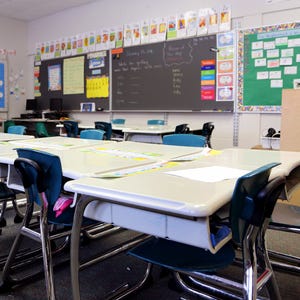Michigan students sliding fast toward the bottom
by Lori Higgins, Detroit Free Press
Michigan, already sliding toward the bottom nationally for fourth-grade reading performance on a rigorous national exam, is projected to fall to 48th place by 2030 if the state does nothing to improve education.
That finding is included in a report out today from Education Trust-Midwest, a nonpartisan education research and policy organization based in Royal Oak. The organization analyzed more than a decade’s worth of results from the National Assessment of Educational Progress — or NAEP, a tough exam given to a representative sample of students in each state.
In 2003, Michigan ranked 28th in fourth-grade reading. In 2015, the state was ranked 41st.
“We’re certainly not on track to become a top 10 state any time soon,” said Amber Arellano, executive director of the organization. “It’s totally unacceptable for the economy, for business and especially for kids themselves.”
• Michigan ranked 41st in fourth-grade reading, down from 28th in 2003.
• The state ranked 42nd in fourth-grade math, down from 27 in 2003.
• It ranked 31st in eighth-grade reading, down from 27th in 2003.
• It ranked 38th in eight-grade math, down from 34th.
The report is focused on the fourth-grade reading results because of how crucial it is for students to be able to read well by the end of third grade. But students have also struggled in math.
The achievement problem crosses demographic lines. Consider how various demographic groups in Michigan compared with similar demographic groups nationwide in fourth-grade reading in 2015: White students in Michigan ranked 49th, higher-income students in Michigan ranked 48th, and black students ranked 41st.
The problem? Many other states are outpacing Michigan, which has posted mostly stagnant — and in some cases declining — results on the NAEP.
“When you look at leading states … they’re like on a rocket ship and we’re on a snail,” Arellano said.
But Martin Ackley, spokesman for the Michigan Department of Education, expressed optimism that current efforts to change the trajectory will be successful.
“The Education Trust is making some predictions we’re not willing to accept,” Ackley said.
He said a current effort by the MDE and the state Board of Education to transform Michigan into a top 10 performing state in 10 years — coupled with Gov. Rick Snyder’s creation of a 21st Century Education Commission — will identify the steps the state needs to take to turn around things.
“We’re engaging countless stakeholders to be involved and be invested” in the effort, Ackley said. “This is not something that’s going to be done overnight.”
The state board heard from dozens of people during its August and September meetings and many more provided input through other means. The board in February approved a set of 31 strategies that the state should undertake. Among them:
• Parents, teachers and students should sign an agreement that outlines individual academic and personal goals for students
• The state should expand nursing, mental health services and health centers in schools
• Schools should be run more efficiently so more money goes into the classroom
• The state should ensure that all students have access to career and tech programs and postsecondary courses while in high school
• The state should expand access to publicly funded early-childhood programs
• The state should expand access to free adult education services and family advocacy support programs.
Some educators have cautioned about drawing too many conclusions from the NAEP data because the threshold for passing is so difficult, the exam is not based on any one state’s standards, and it’s taken only by a representative sample of students. In fourth-grade reading, for instance, 3,100 Michigan students were tested.
On the state’s difficult new exam, the Michigan Student Test of Educational Progress – or M-STEP – nearly all students are tested. The first year of results were a cause for concern, however. The percentage of students passing in English language arts, for example, ranged from 45% in sixth grade to 50% in third grade.
Arellano’s organization last year launched its own top 10 effort, called Michigan Achieves, a campaign aimed at getting parents, civic leaders, business leaders and others involved in improving education in the state.
The decline has happened at the same time schools statewide have struggled financially, and during a time when schools officials say state funding increases — when they’ve happened — haven’t kept up with increasing school costs.
The report outlines steps Michigan must take, including ensuring students can read by the end of the third grade, having a fair funding system that addresses the inequities in state funding between high-poverty districts and low-poverty districts, having state leaders focused on what is right for students, having a strong accountability system for schools, ensuring all students have equal access to quality schools and rigorous coursework, and focusing on improved quality of school leaders and teachers.
The organization is calling on Michigan’s business leaders to “be a thoughtful voice in solving the state’s educational crisis.”
The declining rankings “threatens to undermine our economic momentum and derail Michigan’s competitiveness for decades to come,” the report says.
Contact Lori Higgins: 313-222-6651 or [email protected]












